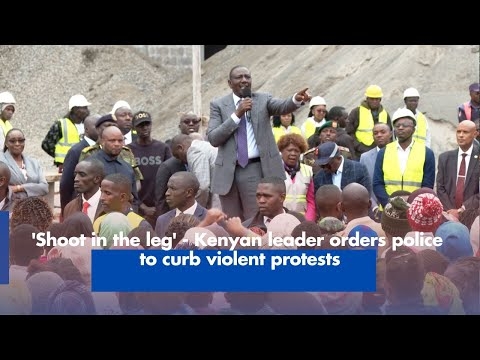At one point, during the evacuation in the DusitD2 terrorist attack Philip Ogola was carrying a victim whose head was shot at close range and holding the head wound to prevent excessive bleeding, his fingers slipped into it.
"The feeling of something warm and soft inside the head often replay whenever i sit to eat ugali, triggering my episode."
Ogola,41, who is nursing Post-traumatic stress disorder, a psychiatric condition, told the Star that family and friends tend to be the flares that exacerbate the triggers for those nursing the illnesses.
Popularly known as digital humanitarian online, Ogola said he developed the condition from his work as a first responder to disaster incidents.
"I was working with Red Cross as a Digital Officer and even after i left the organization, it was just in me, responding to disasters and evacuating victims," the father of two said.
Needless to emphasize, disaster response encompasses being in contact with gory sights of the injured, burnt, dead, and shooting victims among others. Continuous exposure to these, as was the case for Ogola results into prolonged trauma, mostly having them relive through the experiences.
People with PTSD have intense, disturbing thoughts and feelings related to their experience that last long after the traumatic event has ended. They may relive the event through flashbacks or nightmares; they may feel sadness, fear or anger; and they may feel detached or estranged from other people.
"I have seen people bleed to death, others have died on my laps. I have also relayed sad news of death to relatives and friends and have them cry on my shoulder," he said, adding that "these replay in my mind even long after the incident."
Ogola also recounted how his participation in evacuating the victims of the Sinai fires made him stop eating roast meat, commonly known as nyama choma.
"I saw bodies burnt to roast and whenever i see roast meat, however well prepared, they all replay," he recounted, plunging him into almost the deep end of mental illness.
These would happen even though he went for debrief after every disaster incident.
Living with metal health
Giving his own example, Ogola said conservative beliefs especially emanating from families and friends tend to exacerbate the condition, making people nursing them drift further.
"People have not come to appreciate mental illness as a sickness like any other," he said, adding that in the initial stages, his family and relatives in rural Alego Usonga in Siaya County pressured him to seek spiritual intervention.
"Some said i was cursed and that i was demon possessed," he said.
Ogola recounted how his online funds appeal for treatment of his kidney condition in 2017 in which he managed to collect Sh2 million came back to haunt him, sustaining panic attacks.
"Friends would come to me after i was back from India asking for money and when i said it was all depleted in the hospital, they bash me, accusing me of pretending to be sick, a con," he explained.
"Even when i had drifted significantly in March this year, friends would dismiss me as pretending, lowly regard me as crazy and call me con," he recounted, tensed.
Ogola said mental illness patients live in an enclosed world with no patient and understanding friends and if they are men, it is even worse as they are required by the society to "man up."
"Mental health situation is like a deep dark cave which is a quick sand, always sinking," he said.
"I often isolate myself, at one point locked myself up in the house with windows shut, just avoiding the world."
Mathare hospital experience
In March when the relapses worsened, Ogola said, he checked himself in Mathare mental hospital. This even worsened the online bullying, aggravating the panic attacks, he said.
"I'm just amazed how people ignore Mathare mental hospital yet its service is professional and affordable," he said, adding that he paid Sh50 for the psychiatric therapy after paying Sh250 for opening his file.
"The group therapy at the facility was just amazing. Unlike the usual state of public hospitals, this facility is decent, clean, and the personnel there are all-embracing without any stigma," he said.
People need to stop going to these expensive hospitals when they have mental conditon and go to Mathare, he added.








![[PHOTOS] Ruto hosts UDM leaders at State House](/_next/image?url=https%3A%2F%2Fcdn.radioafrica.digital%2Fimage%2F2025%2F07%2Fc69cdbaf-1cbd-4be3-a7e5-a42efcac7189.jpeg&w=3840&q=100)


